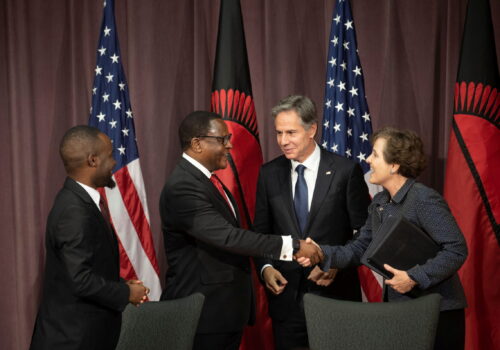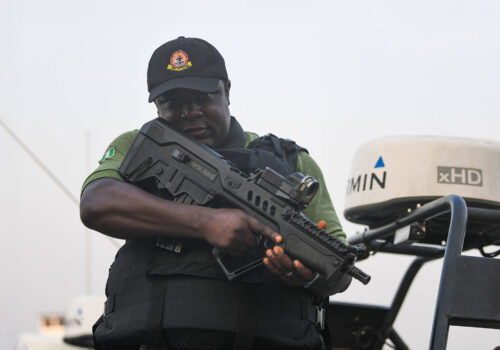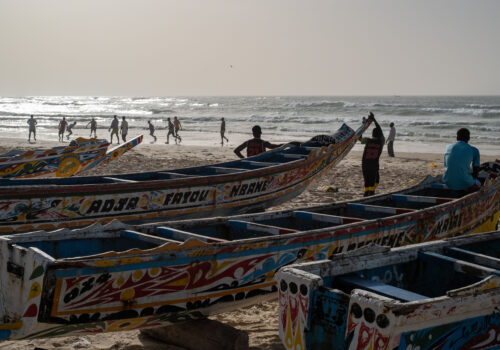DFC 2.0: A blueprint for a bigger, faster and more strategic agency
Bottom lines up front
- The DFC’s current impact is hindered by outdated policies, risk aversion, complex procedures, and equity limitations, all of which restrict its ability to mobilize private capital and take on high-impact, high-risk investments— particularly in critical sectors like minerals needed to compete with China.
- Key policy recommendations for a “DFC 2.0” include granting the agency greater operational flexibility (e.g., higher lending cap, expanded project eligibility), establishing volunteer “deal ambassador” networks to overcome workforce constraints, launching a “Business Corps” for international commercial diplomacy, and streamlining equity scoring and fund management processes.
- Success for DFC 2.0 will require cultural change within the agency to embrace risk, celebrate innovation, coordinate more closely among U.S. government agencies, and rapidly scale its presence and influence—both domestically and globally—to better counter China and advance U.S. national security and economic interests.
Foreword
As Donald Trump’s second term as president of the United States unfolds, African decision-makers are closely watching the deployment of his new trade policy, trying to identify potential opportunities for Africa under the “America First” agenda. In addition to the issue of migration, it seems that he wants to focus his strategy on Africa with a policy of “trade, not aid.” However, beyond rhetoric, the key question is how to mobilize the necessary commercial tools. Following the abolition of USAID, trade instruments are now under scrutiny, particularly the US International Development Finance Corporation (DFC), which is awaiting reauthorization by Congress. On the continent, this shift is being monitored with a mixture of caution—as a transactional approach could neglect local development needs—and optimism because Africa has long awaited access to capital, investment, and infrastructure. Now it also awaits access to the global value chains that the new American approach promises.
For decades, the United States has lagged its competitors such as China, India, Turkey and, more recently, the United Arab Emirates. These countries have used state-owned enterprises or concessional financing to secure key resources and capture market share.
While American companies deemed Africa too risky, companies from other nations were constructing ports, railways, mines, and digital networks, thereby gaining political influence and financial returns. Today, Africans hope that the Trump administration’s desire to refocus US trade strategy on strategic competition will finally trigger the long-awaited flow of US private investment, particularly in high-growth, high-impact sectors such as energy, agriculture, digital infrastructure, and the industrial processing of minerals.
The “DFC 2.0” project embodies this reorientation. It plans to increase the agency’s lending ceiling from $60 billion to $250 billion, establish a $3 billion revolving equity fund, streamline bureaucracy, and encourage risk-taking in order to stimulate investment.
Although this transformation is primarily driven by US economic and security interests, it cannot succeed without addressing Africa’s urgent needs. If implemented wisely, it could lead to mutually beneficial relationships, with projects that secure American supply chains while creating African jobs, industrial capacity, and tax revenues.
For African leaders, this new policy represents a strategic opportunity where traditional aid has failed to deliver the desired results. If the DFC finances the initial stages and risky projects that private investors were reluctant to support, these countries could establish their economies in future industries while supplying the United States and its allies.
However, African stakeholders remain clearheaded: Promises must be kept. The DFC has historically been perceived as slow and risk-averse, much to the frustration of entrepreneurs and governments eager to take actions. Africans will expect a DFC 2.0 to break with this culture, focusing instead on innovation, speed, and local partnerships. They hope for US support not only to extract resources, but also to develop local industries, build skills, and modernize infrastructure. Simply extracting raw materials for US supply chains without creating local value would be a missed opportunity for them. With a population of 1.4 billion people, many of whom are young, and largely untapped markets, Africa offers the United States not only resources, but also resilient allies, dynamic consumers, and innovative entrepreneurs.
Africans expect US embassies, trade missions, and financial institutions to collaborate closely with their governments and the private sector rather than operating independently from Washington.
The reauthorization of the DFC will therefore be a decisive test. If the United States mobilizes its immense capital markets, technologies, and expertise to co-construct African growth, it will advance its strategic objectives and strengthen African aspirations. If it fails, others will fill the void. As Trump’s America redesigns its trade tools, Africa watches with cautious hope, ready to seize opportunities, but determined to ensure that this time, the partnership will be truly reciprocal.
Rama Yade
Senior Director, Africa Center
Senior Fellow, Europe Center
Atlantic Council
Related content
In partnership with
Explore the program

The Africa Center works to promote dynamic geopolitical partnerships with African states and to redirect US and European policy priorities toward strengthening security and bolstering economic growth and prosperity on the continent.
Image: Under Secretary of State Keith J. Krach participates in the US International Development Finance Corporation board meeting at the US Department of State on March 11, 2020. Photo by IMAGO/piemags via Reuters.



